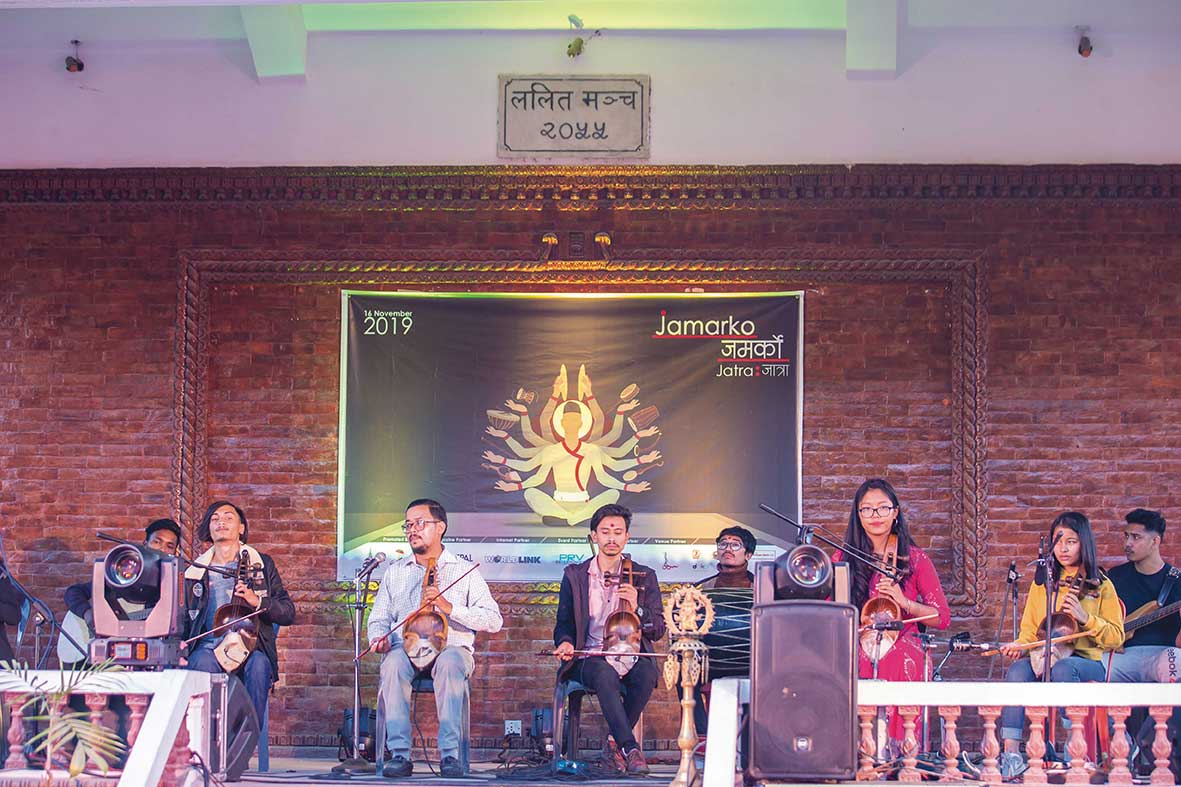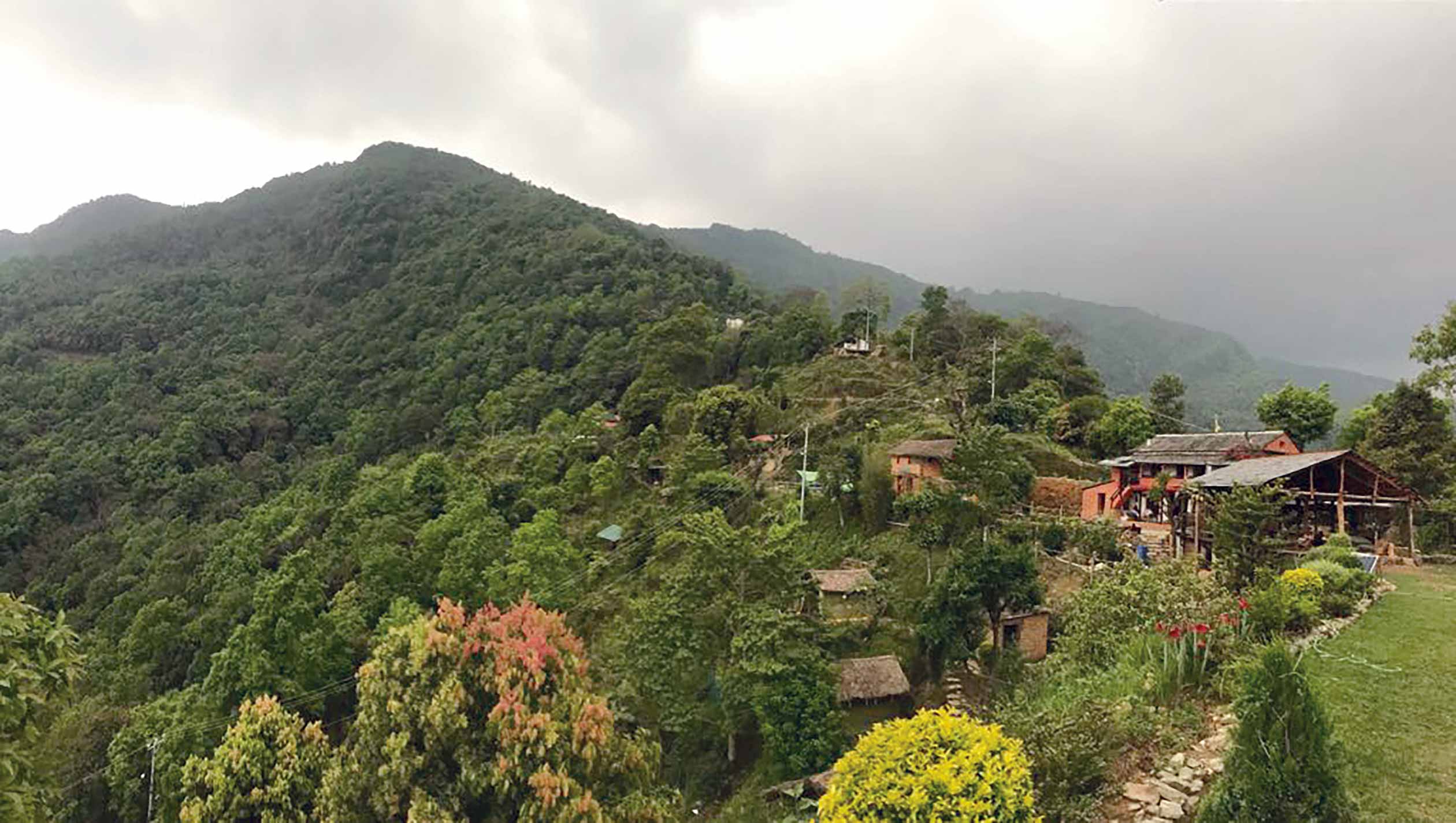After touching the hearts of Nepalis and even foreigners of all ages with their first two incredibly marvelous albums, Kutumba’s ‘Naulo Bihani’ is another mind-boggling album invigorating every Nepali to hold on to their cultures and traditions. With its album named, ‘Naulo Bihani’ (new and unique morning), it has unquestioningly thrived to recapture the moods of people with its new, unique and improvised, yet spectacular music with instruments such as Maadal (Nepali drum), Sarangi (Traditional Nepali Violin), Tungna (Mountain Tibetan Guitar), Ghanti (Bell), Jhyamta (Cymbals), Baansuri (flute), Ring, etc.
Two of the works, ‘Folkmen’ and ‘Utsav’ have acted as ardors to the festivities, customs and traditions of the Nepali realm. The Baansuri, as always, has livened up the songs, taking people vicariously to view the Dances and Jatras (Traditional Nepali rituals and performances) that take place during festivals. The instruments’ contrasting tones in the songs ‘Kanchi’ and ‘Manchare’ leave feet tapping and heads nodding, thus entertaining us with lovely old folk tracks from the movies, Kanchi and Anyaya respectively. If you’re a Nepali, you’ll undoubtedly realize that you’re singing the songs with the flow of the music in the end!
Melodic, without being lyrical, the music’s tranquility covers its complexity, thereby exposing every bit of cultural importance. Composed for the 9th Hits FM music awards, the rhythmic song ‘Feb (1+3)’, meaning, February 4, is harmonically magnificent. The album further covers tracks like ‘Jalna’, the outstandingly replenished cover of a street theatre music originally composed by Bishnu Jalmi 50 years ago, and ‘Yak Walk’, the song giving a sensational adventurous feel. ‘Yak Walk’ takes us to the Himalayas, showing us an imaginary adventure of a boy walking down the plains of the Tarai and, like other songs, its appeals to both the mind and the heart.
The track, ‘Naulo Bihani’, mournful and darker like their eighth track, ‘Farewell’ describes the spectacular beauty of dawn in a somber, yet pleasant way, leaving the album complete and perfect with combinations of pure Nepali sounds.
The album also speaks of brotherhood along with its relentless beats finding their way straight to your mind. Good example, for this is the concluding song, ‘Vasudeva Kutumbakam’, meaning ‘the whole world is one big family’, is another masterfully balanced track. The song tells all about the album, weaving elements like nature, inspiration, tradition, adventure and departure. And with a finish like that, this reviewer assures you that the album is, perhaps, one of the best Nepali instrumental pieces.











